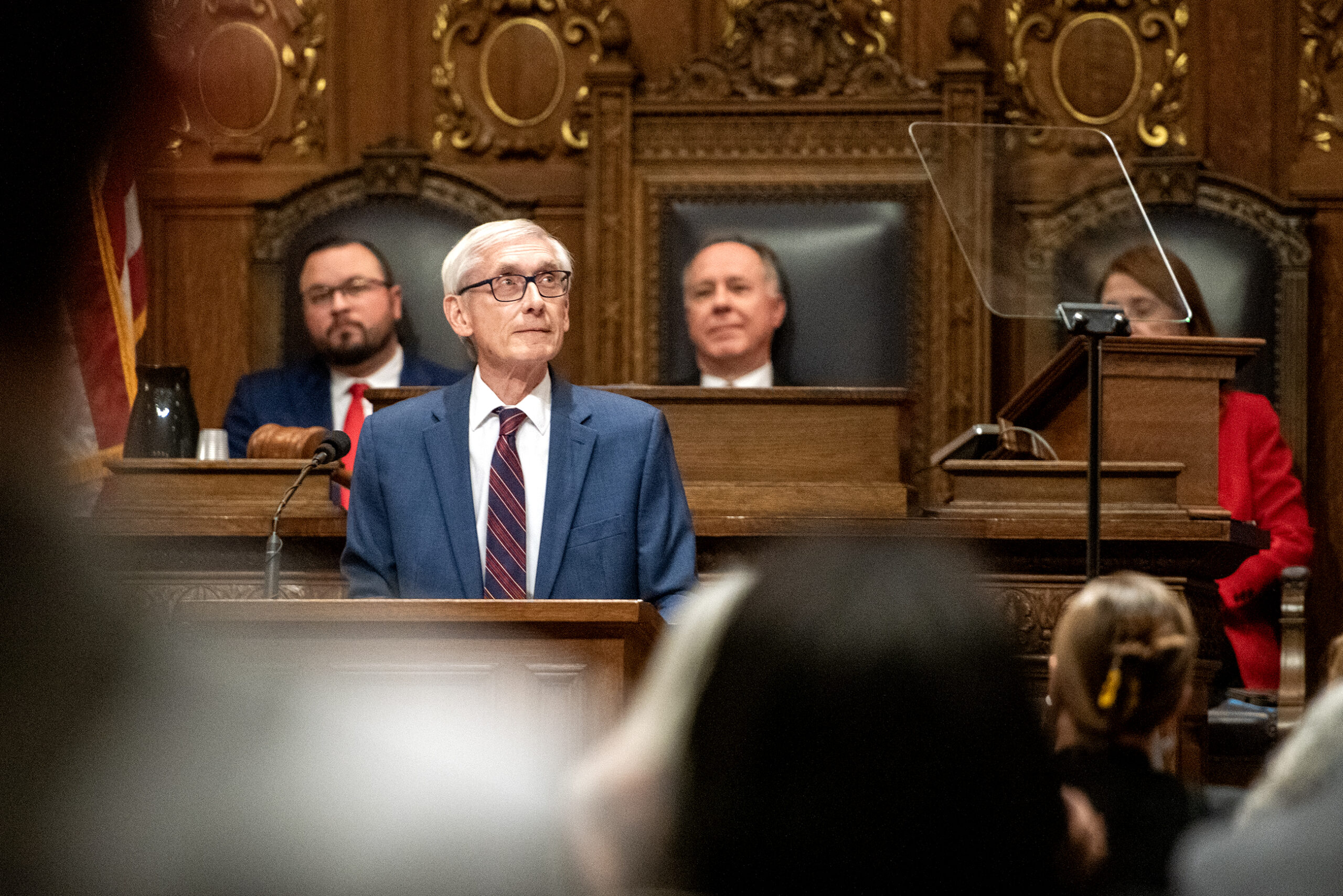The Wisconsin Supreme Court agreed Wednesday to take a case from a conservative advocacy group challenging the governor’s veto powers.
The lawsuit, filed by the conservative Wisconsin Institute for Law and Liberty (WILL), argues Gov. Tony Evers used his veto pen on the state budget to create new laws, rather than alter language passed by the Legislature.
The lawsuit references several of the governor’s budget vetoes, including one that led to a $75 million grant program for local road projects.
Stay informed on the latest news
Sign up for WPR’s email newsletter.
WILL deemed the act “the magician’s veto” and asked the state Supreme Court to take the case directly, bypassing Wisconsin’s lower courts.
Rick Esenberg, president and general counsel of WILL, lauded the court’s decision Wednesday to do so.
“Governor Evers abused his partial veto to create new laws out of whole cloth,” Esenberg said in a prepared statement. “The people of Wisconsin never intended the check on legislative power the Governors’ veto represents to permit the Governor to legislate on his own.”
Esenberg has acknowledged previous governors have used their veto pens in a similar manner, but said his organization hasn’t had the capacity to challenge the actions until now.
The lawsuit also references Evers’ partial budget vetoes that changed vehicle registration fees for heavy trucks, altered the definition of “vapor products,” and eliminated a grant program for school buses, which Evers replaced with grants for electric vehicle charging stations.
Wisconsin’s Supreme Court currently has a 5-2 conservative majority.
Britt Cudaback, spokeswoman for Evers, defended the governor’s vetoes on Wednesday.
“The governor’s vetoes improved Republicans’ budget by increasing support for our public schools and fixing our roads, and were entirely consistent with the Wisconsin Constitution, decades of decisions by the Wisconsin Supreme Court, and vetoes by prior governors,” Cudaback said.
Evers has previously called the lawsuit a symptom of Republicans “not being able to move on” from losing the governor’s office last year.
While the lawsuit, if successful, would alter how any future Wisconsin governor could use a veto pen, amendments to the state constitution serve the same purpose. Two previous constitutional amendments in Wisconsin have reined in the governor’s veto powers.
In 1990, voters approved limiting the governor’s ability to delete letters from words to create new ones, a practice called the “Vanna White veto.”
In 2008, they stripped the governor’s power to delete words to create new sentences, which was called the “Frankenstein veto.”
Earlier this year, Republican state lawmakers introduced another possible constitutional amendment that would bar the governor from using veto power to increase state spending.
In order for a constitutional amendment to go into effect it must pass two consecutive sessions of the state Legislature and then be approved by a statewide voter referendum.
Editor’s note: This story was updated with a comment from the governor’s office.
Wisconsin Public Radio, © Copyright 2025, Board of Regents of the University of Wisconsin System and Wisconsin Educational Communications Board.




